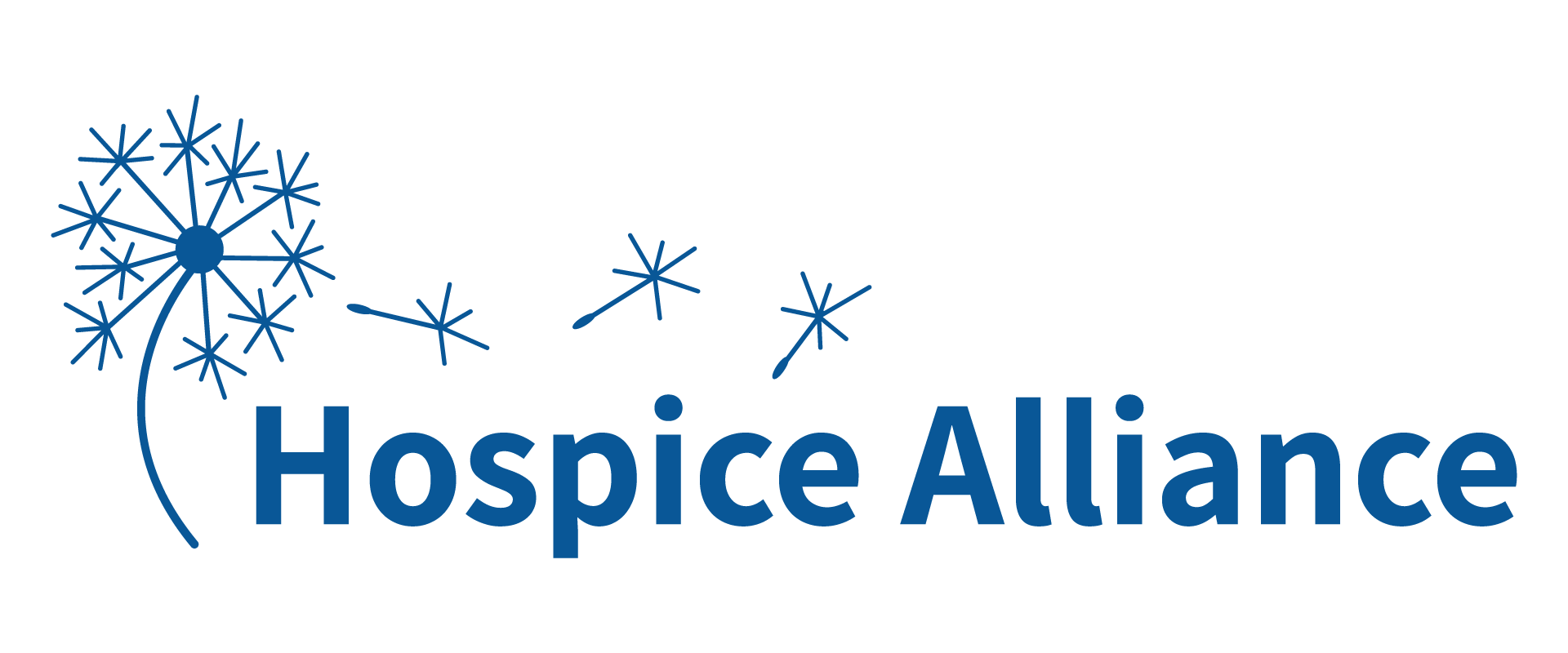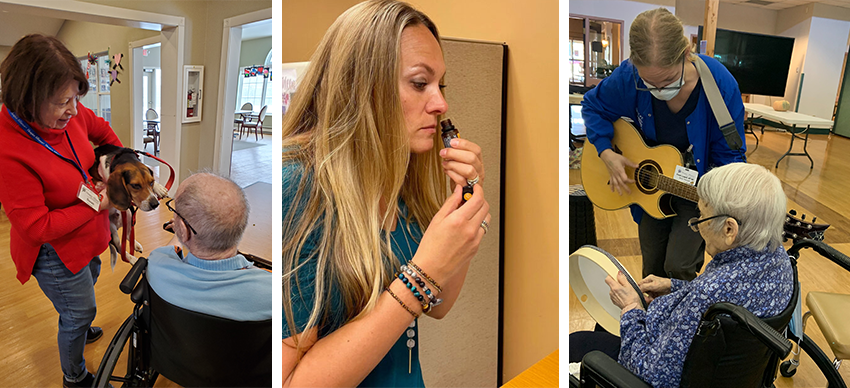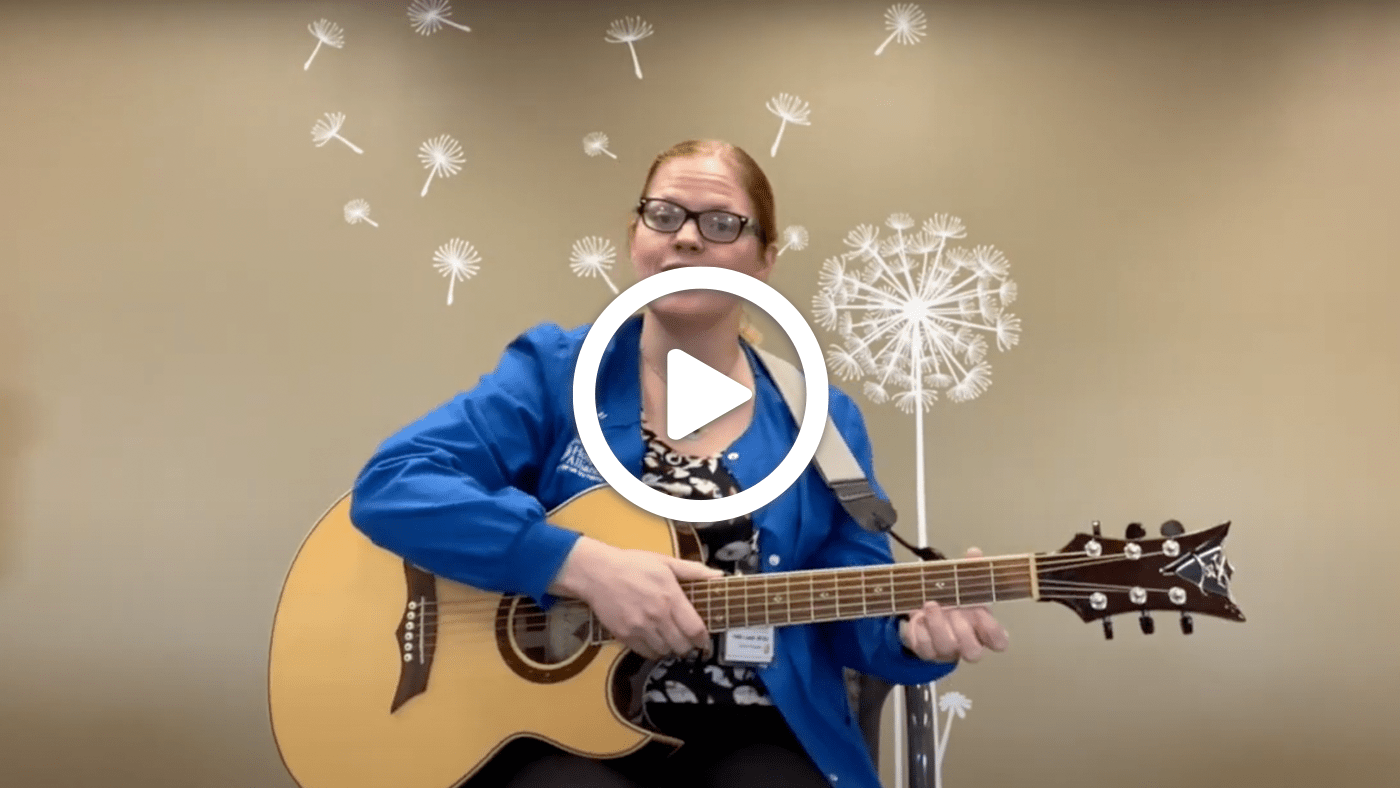Until Next Time
Our amazing therapists, dedicated social workers, compassionate chaplains, RN Case Managers and CNAs are available for frequent in-person visits. But when they aren’t with you or your loved one, we've collected activities, virtual adventures, and videos in our Until Next Time program!
Hospice Alliance is at the forefront of using complementary therapies to provide the best quality of care for the whole person – physically, spiritually and emotionally.
There is great effort to make someone’s end-of-life story be filled with meaningful moments.
—Trish Koeppel (volunteer)
Aromatherapy
Essential oils have many effects on the body, mind and spirit with hospice patients perhaps most benefiting from the peace and comfort the therapy provides.
Since sense of smell is tied to memory and emotions, aromatherapy can evoke good memories and have a positive psychological response with our patients. Sometimes, patients who are agitated and unable to express themselves become calm and restful when aromatherapy oils are used. It can help control pain, stress and anxiety. Often simply smelling a certain fragrance can take a patient back to positive experiences throughout his or her life.
Digital Therapy
Mynd Immersive is a senior-friendly virtual reality platform used with patients as a form of Digital Therapy. Digital therapies have been shown to help maximize comfort and reduce pain and anxiety in patients, by addressing the patient’s physical, psychological, and spiritual needs. Patients can choose from 100 virtual experiences, from watching a Broadway musical to touring war memorials in Washington D.C. A volunteer or staff member operates the tablet, helping the patient choose an experience that will be viewed through the VR glasses. Mynd Immersive does not need internet connectivity to function, which makes it possible for our team to bring the experience to a patient wherever they feel most comfortable.
Veteran patient virtual experiences:
- Tour the war memorials in Washington D.C.
- Tour of the National Mall in Washington D.C.
- Tour an aircraft carrier -- USS Nimitz or USS Eisenhower
- Watch a USO show
Other patient experiences:
- World travel to famous cities or landmarks - tour places they had always wanted to visit
- Watch a Broadway Musical
- Tour a classic car museum
- Animals: watch animal videos - puppies, kittens, horses, ducklings, etc.
- Animals: tour a farm, an animal sanctuary, or a petting zoo
- Adventure: scuba dive, skydive, zipline, or go whitewater rafting
- Space: fly with astronauts in outer space, or watch a rocket launch
- Music: sing-along experiences with different genres of music
- Faith: learn about the 7 miracles
Life Enrichment
Life Enrichment focuses on enhancing the emotional, mental, and spiritual well-being of individuals as they age. It involves creating meaningful experiences that bring comfort, connection, and a sense of purpose. Activities such as exercise for groups, arts and crafts, food prep programs, group games, discussions and learning help seniors stay engaged and maintain their identity.
Massage Therapy
Massage therapy can ease pain, reduce feelings of isolation and calm emotions. In the hospice setting, massage therapy is usually a lighter touch and a shorter session than traditional massage. The massage takes place wherever the patient is most comfortable and is often performed through the clothing. Massage therapy helps to decrease pain, increase circulation, and relax the patient. Massage therapy also enhances spiritual well-being and helps the patient become grounded in the present moment, while giving them an increased sense of self-acceptance and self-worth.
Music Therapy
Music therapy is more than a music activity. It is the clinical and evidence-based use of music intervention by a board-certified music therapist. Sound affects our physical and emotional well being and affects heart rate, blood pressure, respirations, and release of the body’s natural painkilling chemicals. It assesses the strengths and needs of the patient and designs a plan of treatment that includes creating, singing, moving to and/or listening to live, patient-preferred music within individual, group and/or family sessions.
Because music is non-threatening, enjoyable and enhances brain function, people of diverse ages, backgrounds and abilities can gain therapeutic benefits through music therapy. When offered to those at the end-of-life, music therapy can bind with other healing efforts to address the physical, emotional, cognitive and social needs of hospice patients. While not appropriate for every hospice patient, music therapy can be surprisingly effective with an otherwise unresponsive patient.
Who Can Benefit from Hospice Music Therapy?
Music therapy provides the most benefit to patients who:
- Lack social interaction or lack adequate sensory stimulation due to dementia or functioning
- Experience pain or other disease symptoms that are difficult to control through traditional medical interventions
- Feel anxious or have times of agitation
- Look for a concrete way to cope or to define or articulate feelings or thoughts
- Face communication problems due to physical or intellectual impairments
- Need spiritual support, possibly involving other family members
Pet Therapy
Pet therapy is a guided interaction between an individual and a trained animal. It also involves the animal's handler. The purpose of pet therapy is to help a patient cope with health issues. Pet therapy builds on the pre-existing human-animal bond. With this natural relationship, pet therapy can aid in progress towards a patient's goals of improved physical, social, emotional and cognitive functioning.
Some of the medically documented benefits of Pet therapy have been noted in areas like: lowering blood pressure, easing physical and emotional pain, improved memory, increased physical abilities, decreased anxiety and loneliness and at times improved interactions with others. There's nothing like a visit from a four-legged friend to distract patients from their current situation and to brighten their days with a smile.
Reiki
Reiki (ray-key) in Japanese means “Universal Life Force energy.” It is not a belief system, nor is a belief system needed to enjoy it's benefits. A Reiki treatment supports the whole person physically, emotionally, mentally, and spiritually.
During a session, the clothed client will sit or lie comfortably, and the practitioner will place their hands lightly on or over specific areas of the body where physical injury or even emotional pain may cause energy to be stagnate. Reiki aims to help the flow of energy and remove blocks in a similar way to acupuncture or acupressure.
It can be used to relieve stress and promote relaxation. It is often used for personal wellness, stilling the mind, lowering blood pressure, and easing pain. Reiki may reduce anxiety and support a sense of peace. Reiki will not interfere with conventional medicine and is frequently used in conjunction with it.



